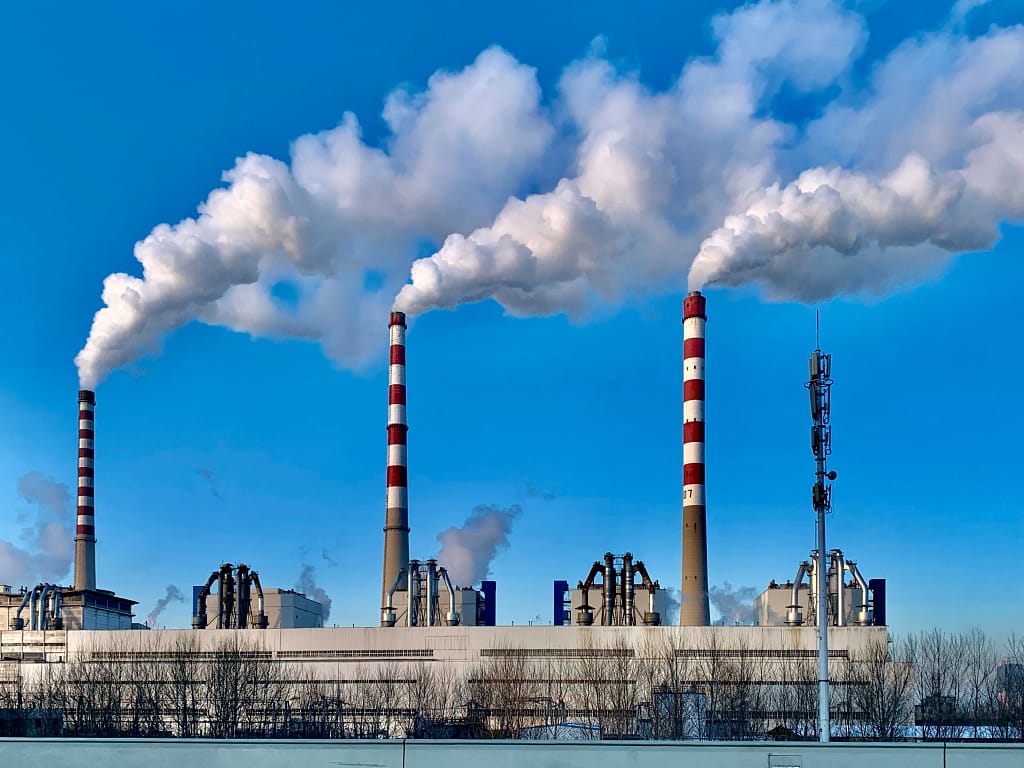AI-Powered Cyber Threats: How Businesses in Thailand Can Stay Resilient
As artificial intelligence evolves, so do the threats facing today’s businesses. AI-powered threaths/attacks are increasingly targeting organizations, exploiting vulnerabil
Pollution Insurance (E.I.L ) Environmental Impairment Liability for your company against the environmental costs and damage associated directly from its operations.
Pollution insurance, also known as environmental impairment liability insurance or pollution liability insurance, is a type of coverage that protects businesses, individuals, and entities from the financial costs associated with pollution-related incidents. This insurance is designed to provide coverage for bodily injury, property damage, cleanup costs, and legal expenses resulting from pollution events.
Coverage for Environmental Liabilities: Pollution insurance typically covers liabilities arising from the release or escape of pollutants into the environment. This can include pollutants released on the insured’s property or as a result of their operations.
Third-Party Liability: The coverage often extends to third-party liabilities, including bodily injury and property damage claims filed by individuals or other businesses affected by the pollution event.
Cleanup Costs: Insurance may cover the costs associated with cleaning up and remedying pollution-related damage. This can include expenses for soil and water remediation, as well as the removal of hazardous substances.
Legal Expenses: Pollution insurance may cover legal expenses incurred in defending against lawsuits related to pollution incidents.
Various Industries: Many industries can benefit from pollution insurance, including manufacturing, waste management, construction, transportation, and more. It is especially relevant for businesses that handle hazardous materials.
Governmental Compliance: Some policies may provide coverage for costs associated with complying with environmental regulations and cleanup requirements imposed by governmental authorities.
It’s important to note that pollution events can have long-lasting and far-reaching consequences, and the financial burden of cleanup and legal liabilities can be significant. Pollution insurance helps mitigate these financial risks, providing peace of mind and financial protection for businesses and individuals involved in activities that could have environmental implications. Businesses should carefully review policy terms, conditions, and exclusions to ensure that the coverage meets their specific needs.

When considering pollution insurance, there are several additional factors and considerations to keep in mind:
Policy Limits and Deductibles: Understand the limits of coverage provided by the policy, which represents the maximum amount the insurer will pay for covered losses. Additionally, be aware of any deductibles, as these are the amounts you must pay out of pocket before the insurance coverage takes effect.
Scope of Coverage: Different policies may have varying scopes of coverage. Some may focus on specific types of pollutants or sources of pollution, while others provide broader coverage. Ensure that the policy aligns with the specific risks associated with your business or activities.
Claims Reporting: Familiarize yourself with the procedures for reporting pollution incidents and filing claims. Timely reporting is often crucial in the case of environmental events, and understanding the claims process can help expedite the resolution.
Risk Management Practices: Implementing strong risk management practices to prevent pollution incidents can not only reduce the likelihood of accidents but may also positively influence insurance premiums. Insurers may offer more favorable terms to businesses that demonstrate proactive efforts to minimize environmental risks.
Regulatory Compliance: Stay informed about environmental regulations applicable to your industry and location. Pollution insurance can provide coverage for costs associated with compliance, but understanding and adhering to regulatory requirements is essential.
Policy Exclusions: Review policy exclusions carefully. Some common exclusions may include gradual pollution (as opposed to sudden and accidental events), intentional acts, and pre-existing pollution conditions. Understanding these exclusions is crucial to avoiding surprises in the event of a claim.
Tailored Coverage: Work with an experienced insurance professional to tailor the coverage to the specific needs of your business. They can help you assess your unique risks and customize a policy that provides adequate protection.
Long-Term Considerations: Pollution events can have long-term consequences, and the financial impact may extend beyond the immediate cleanup phase. Consider the long-term implications of pollution incidents when evaluating insurance coverage.
As with any insurance product, it’s essential to thoroughly review policy documents, ask questions, and seek advice from insurance professionals to ensure that your pollution insurance meets your specific needs and provides the necessary protection for your business or activities.
We provide a responsive, personal service and would love to talk over coffee about your problem. We come to you so give us a call or tell us below how to get in touch with you:
Insurance policies to cover all aspects of life, health, business. Individually developed around the needs of each client, business entity, industry and environment. Working on your behalf to deliver best in class insurance cover from the leading insurance providers.
Click on a policy below to explore:
As artificial intelligence evolves, so do the threats facing today’s businesses. AI-powered threaths/attacks are increasingly targeting organizations, exploiting vulnerabil
Operating small businesses in Thailand brings unique risks—from natural disasters to legal liabilities. Still, many small business owners underestimate the importance of insuranc
Renewing your business insurance isn’t just a routine task—it’s an opportunity to verify that your coverage accurately reflects your current and future risks. As your company
Business insurance in Thailand isn’t just about buying a policy — it’s about understanding how that coverage truly protects your operations. Unfortunately, many small busines

Life & General insurance Services for Corporate, Commercial and Industrial clients.

Life & General insurance Services for Corporate, Commercial and Industrial clients.
Thailand Insurance Service Ltd, © 2022 | All Rights Reserved


